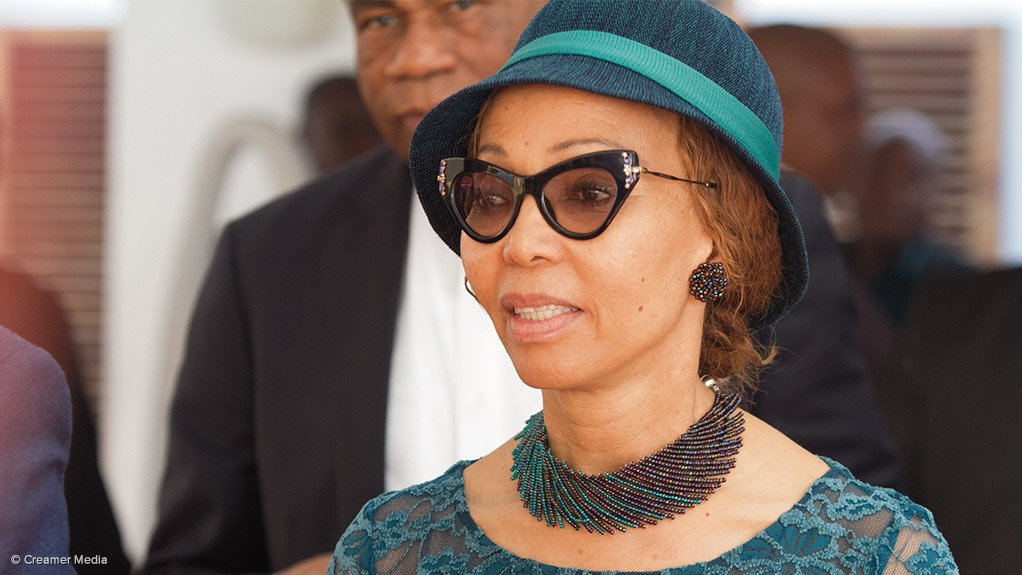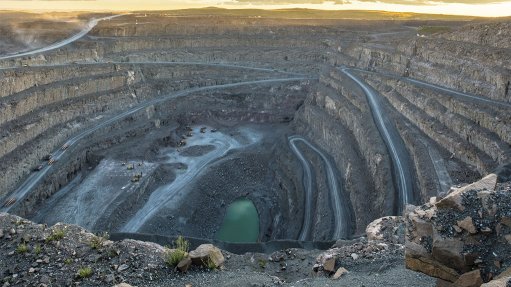Radebe calls for urgent stop to transfer pricing by mining companies



DODGY DEALINGS Some foreign-owned mining companies, particularly ones that have their primary listing outside of South Africa, sell commodities to their marketing divisions at lower than market-related prices
BRIDGETTE RADEBE Many problems currently plaguing the sector, including labour unrest, and service delivery protests in mining communities, could have been avoided if it was not for the offshore ownership of South African mines
Photo by Duane Daws
There is an urgent need for government to stop transfer pricing in the mining industry and ensure compliance with the Mining Charter, states
black-owned mining company Mmakau Mining executive chairperson Bridgette Radebe.
Transfer pricing involving the transfer of goods or services at an artificial price, usually lower than their actual worth, to transfer income from one business to an associated business in a different tax jurisdiction.
Radebe alleges that some foreign-owned mining companies, particularly those that have their primary listing outside South Africa, sell commodities to their marketing divisions at lower than market-related prices.
“This results in the exportation of profits to tax havens . . . the declaration of low profits and the payment of minimal tax in the country where the commodity is being produced and exported.”
Radebe adds that, as transfer pricing regulations are being tightened in South Africa, more sophisticated tax evasion schemes – characterised by the abuse of advanced pricing agreements – are emerging.
Many of the problems currently plaguing the sector, including labour unrest and service delivery protests in mining communities, could have been avoided if it were not for the offshore ownership of South African mines, she says.
“E-tolls are also a result of transfer pricing, as such pricing creates the erosion of capital and results in a lack of funding for road infrastructure.”
Radebe also believes that load-shedding, South African Airways’ financial difficulties and education, as well as the healthcare sector’s budget constraints, are all a direct result of transfer pricing.
“All the money that was transferred out of the country as a result of transfer pricing by mining companies could have been used by these sectors,” she states.
Further, Radebe points out that tax evasion is not only a South African phenomenon. The Australian Taxation Office is pursuing mining giants BHP Billiton and Rio Tinto, as it believes these companies have, over many years, channelled billions of dollars in profits out of Australia from iron-ore sales through companies in Singapore, where they pay almost no tax.
“Government must learn from Australia and investigate how much money mining firms have transferred abroad. Legal actions should then be instituted to ensure that they pay back the money owed to the State and its people,” Radebe insists.
Black-Empowerment Shortfalls
Radebe says transfer pricing is also responsible for many companies’ noncompliance with the ownership requirement of the Mining Charter for 26% equity participation for historically disadvantaged South Africans (HSDAs).
“The current ownership structure is a neocolonialist ownership model that perpetuates ownership of the country’s resources and mines by a foreign investor monopoly,” she asserts.
Ownership is still unrealised in the majority of broad-based black economic-empowerment transactions because of the lack profits that resulted from the lack of dividends and nonpayment of equity for ownership of the mines, which is a direct result of transfer pricing, she explains.
Radebe highlights that, according to research undertaken by the South African Mining Development Association on the JSE’s top 49 mining companies in 2014, their total combined market capitalisation was R2.5-trillion. If all the top 49 listed mining companies had 26% HDSA ownership of R2.5-trillion, the value would have been R669-billion in HDSA participation in 2014.
However, she says HDSA ownership is currently only R63.9-billion, which is equivalent to 2.49% of the forecast value.
Radebe says all South Africans should be committed to a South African economic and investment strategy and model, as this will ensure economic sustainability.
Canada provides an “excellent example” of a government placing its own country’s policies and sentiments first. She explains that, in 2010, the Canadian government blocked BHP Billiton’s $39-billion bid for Potash Corp, the world’s biggest producer of a key crop nutrient, halting what would have been the world’s biggest takeover at the time.
The then Canadian Industry Minister Tony Clement said: “In Canada, our natural resources are an important economic driver and I have come to the conclusion that BHP Billiton does not present a likely net benefit to Canada.”
“Like Canada, South Africans must adopt a ‘South Africa First Strategy’ to ensure a net benefit to South Africa,” Radebe concludes.
Radebe spoke at black-owned training and conferencing company Intelligence Transfer Centre’s Mineral Resources Compliance and Reporting conference, which was held in Johannesburg last month.
Comments
Press Office
Announcements
What's On
Subscribe to improve your user experience...
Option 1 (equivalent of R125 a month):
Receive a weekly copy of Creamer Media's Engineering News & Mining Weekly magazine
(print copy for those in South Africa and e-magazine for those outside of South Africa)
Receive daily email newsletters
Access to full search results
Access archive of magazine back copies
Access to Projects in Progress
Access to ONE Research Report of your choice in PDF format
Option 2 (equivalent of R375 a month):
All benefits from Option 1
PLUS
Access to Creamer Media's Research Channel Africa for ALL Research Reports, in PDF format, on various industrial and mining sectors
including Electricity; Water; Energy Transition; Hydrogen; Roads, Rail and Ports; Coal; Gold; Platinum; Battery Metals; etc.
Already a subscriber?
Forgotten your password?
Receive weekly copy of Creamer Media's Engineering News & Mining Weekly magazine (print copy for those in South Africa and e-magazine for those outside of South Africa)
➕
Recieve daily email newsletters
➕
Access to full search results
➕
Access archive of magazine back copies
➕
Access to Projects in Progress
➕
Access to ONE Research Report of your choice in PDF format
RESEARCH CHANNEL AFRICA
R4500 (equivalent of R375 a month)
SUBSCRIBEAll benefits from Option 1
➕
Access to Creamer Media's Research Channel Africa for ALL Research Reports on various industrial and mining sectors, in PDF format, including on:
Electricity
➕
Water
➕
Energy Transition
➕
Hydrogen
➕
Roads, Rail and Ports
➕
Coal
➕
Gold
➕
Platinum
➕
Battery Metals
➕
etc.
Receive all benefits from Option 1 or Option 2 delivered to numerous people at your company
➕
Multiple User names and Passwords for simultaneous log-ins
➕
Intranet integration access to all in your organisation




















